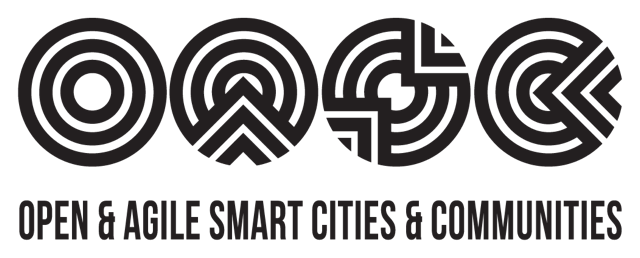Gard Jenssen, program lead of Smart Fredrikstad, Norway, and Gavin Summerson, City Standards Team UK lead at Connected Places Catapult, are heading the OASC Working Group ‘City Standards Users’. In this article, they share how they plan to make standards more accessible to cities and communities of all sizes.
At this year’s Connected Smart Cities Conference in Brussels organised by Open & Agile Smart Cities (OASC), we took part in a workshop that brought cities together with standards developing organisations (SDOs). The objective? To discuss how the use of standards can support smart cities and communities.
With an estimated 12,000 standards for smart cities available from national, European, and international SDOs – sometimes proprietary, sometimes open – cities and communities need support to navigate and use these different standards. And most importantly, they need to work together and exchange best practices and use cases.
From ISO JTC1 to ETSI NGSI-LD – Mastering Standards Means Mastering Acronyms
Cities are facing barriers when it comes to usage and implementation of standards to facilitate data exchange between city departments and cities, as well as with third parties. When it comes to standards for smart cities, cities are often asking themselves similar questions:
- What do all these acronyms mean?
- What is the business case for using (open) standards?
- What standards or data models should be used, when issuing a tender?
- What are the benefits of using open standards?
Linking SDOs and Cities
While cities are, on the one hand, having practical questions around smart city standards, it is equally important to connect cities and communities to the standardisation community. This exchange enables cities to express their standardisation needs and to set priorities. But how can we establish a good connection between smart city managers on the ground and the standards experts in the cloud?
‘City Standards for Dummies’: Creating a help desk for cities
One of the main questions during the workshop at Connected Smart Cities Conference was what do cities do if they need help? The solution could be a help desk that provides cities with an open space to ask practical questions about standards and data models and to share their experiences. At the same time, they would also receive expert support from the help desk manager.
The objective of the help desk is that cities should cooperate and re-use existing data models and standards instead of developing new ones for particular smart city applications. The OASC member cities Dublin, Antwerp and Manchester are currently working together on developing data standards for cycling data. Once established, the data models can be reused and deployed by other cities working with cycling data. A help desk can support in collecting such use cases and share them with cities.
Join the Working Group
To drive the development of the smart city standards help desk join our dedicated Slack workspace (Click here to join).
We encourage all to get involved in the group, particularly those who would like a space to ask simple questions about standards, as more experienced standards users that are happy to share their experiences. Or join, if you would like to give input on how to organise for this challenge.

